Best Practices Articles

The Journey to AI in Channel Partnerships: How Zugit Was Born from Sales Frustration
In the dynamic and often tumultuous world of enterprise technology, the evolution of how businesses sell and grow is a constant narrative. The traditional models of direct sales, while effective in their own right, have increasingly been complemented, and in some cases challenged, by channel partnerships' intricate and powerful potential. When executed correctly, these partnerships can serve as a multiplier for growth, extending a company's reach into new markets and customer segments.
However, the path to successful channel partnerships is rarely smooth. It is often fraught with friction, misaligned incentives, and a lack of trust that can undermine even the most promising collaborations. This inherent complexity and frustration formed the crucible for a new kind of company born from a salesperson's direct experience who saw the immense potential of partnerships but was equally burdened by their practical challenges.
🎥 Watch the Full Video Podcast
This is the story of Naomi Dreifuss, a seasoned professional in B2B enterprise SaaS, and how her journey of frustration and disillusionment with traditional Partner Relationship Management led to the creation of Zugit, a groundbreaking company at the forefront of AI in partnerships. Her story is not just an anecdote but a profound reflection of a systemic issue in the industry and a powerful testament to how personal experience can drive innovation. The journey from a salesperson’s daily grind to founding a company aimed at solving a deep-seated industry problem is a powerful narrative highlighting the critical need for a new approach to Partner Relationship Management. This transformation is not merely about a new technology; it is about a fundamental shift in mindset, driven by a desire to create a more efficient and effective ecosystem for all parties involved in channel partnerships. The insights she gained on the front lines of sales are now shaping the future of channel partnerships, proving that true innovation often starts with a deep understanding of the problem itself. The need for a better model of Partner Relationship Management was clear, which led to the development of an advanced platform for AI in partnerships.
The conversation with Sugata Sanyal on the podcast “The Rise of AI Agents in Partner Experience Management” delves deep into this transformative journey. Naomi’s narrative begins not with a grand vision, but with the day-to-day realities of being on the front lines of enterprise sales. She spent a decade navigating the competitive landscape of B2B SaaS, with significant time at a unicorn BI company where she first encountered the complexities of channel partnerships on a large scale. Her role required her to work with partners to close deals, which she described as "exhausting and very complicated and quite frustrating." This frustration was not a fleeting emotion but a persistent friction point highlighting a fundamental flaw in the existing Partner Relationship Management frameworks. The systems and processes in place were often manual, siloed, and ill-equipped to handle the fast-paced nature of modern sales cycles. This systemic inefficiency became a driving force, a palpable problem that demanded a solution. This visceral experience with the shortcomings of traditional channel partnerships planted the seed for Zugit, a company built on the premise that there must be a better way to manage these crucial relationships.
The development of AI in partnerships as a core solution directly resulted from her recognition that only a data-driven, intelligent approach could overcome the ingrained inefficiencies and distrust that plagued the industry. Her vision for Partner Ecosystem Optimization was clear: to move from a chaotic, manual system to a streamlined, automated, and collaborative one. This new approach to Partner Relationship Management would be the key to unlocking the full potential of channel partnerships, powered by a new generation of AI in alliances.
From Salesperson to Founder: A Problem in Search of a Solution
The defining moment for Naomi came when her company made a strategic shift, opting to let go of many direct salespeople in certain regions to emphasize channel partnerships more. This decision, while a common go-to-market strategy for many companies, felt like a validation of the very frustrations she had been experiencing. It was a clear signal that the industry was moving in a direction that required a fundamental change in how partnerships were managed. This pivot by her employer didn't just impact her job; it ignited a powerful sense of urgency and purpose. Naomi realized that her problems were not unique to her or her company. They were a pervasive, industry-wide issue, a form of historical baggage that had made the very concept of channel partnerships a source of friction for many direct salespeople. She saw deep distrust between salespeople and partnership teams, often rooted in a lack of transparency and data sharing. Salespeople feared that bringing partners into a deal would complicate their commission structure or even lead to them being cut out of the deal entirely. This fear, grounded in the reality of many traditional sales compensation plans, created a risky collaboration environment. The lack of a unified platform or a single source of truth for effective Partner Relationship Management meant that everyone was operating in their silo, with their priorities and their fears. This friction in channel partnerships was a problem that had to be solved, and it required a solution that went beyond a simple update to existing Partner Relationship Management software.
This distrust was a two-way street. Partners were equally hesitant to share valuable information about their pipelines, fearing vendors would go directly to the customer and leave them with nothing. This created a climate of secrecy and inefficiency, where both parties were operating in silos, unable to leverage the full potential of their collaboration. The traditional systems of Partner Relationship Management were not designed to overcome this cultural and operational barrier. They were often static databases, lacking the dynamic intelligence to foster genuine trust and collaboration. Naomi’s insight was that to fix this, one couldn’t just build another tool; one had to address the underlying friction points. She saw a parallel between the rigid, long-cycle development of old software and the equally slow and inflexible go-to-market strategies of the past. Just as the agile movement revolutionized software development, she believed a similar transformation was needed for channel partnerships. This idea, that an agile, data-driven approach could solve these deep-seated problems, became the core philosophy of Zugit.
The company’s focus on using advanced technology, specifically AI in partnerships, to bridge these gaps directly resulted from Naomi's real-world experiences. The vision was to replace the old, manual, and often confrontational processes with a new, transparent, and collaborative framework that benefited everyone involved in the partner ecosystem. This approach laid the groundwork for a new era of Partner Experience Management, one where trust is built on a foundation of shared data and mutual success. Her frustrations became the blueprint for a solution that promised to solve one of the most enduring problems in B2B sales and Partner Relationship Management. This new model for AI in partnerships was set to redefine how companies engage in channel partnerships. The practical implementation of AI in alliances would be a crucial step in this evolution of Partner Relationship Management.
The naming of the company itself, Zugit, reflects this foundational philosophy. Derived from the Hebrew word "Zug," which means "partner," the name was chosen deliberately to be "in disguise," as Naomi put it. She knew the word "partnerships" had negative connotations for many salespeople, and she wanted to create a new narrative and conversation around the topic. The name was a subtle nod to the core mission while avoiding the historical baggage that had made the term so loaded. This strategic choice was a branding exercise and a reflection of the company's commitment to approaching the problem from a fresh, unbiased perspective. By focusing on improving the Partner Relationship Management process through innovation and data, Zugit aimed to redefine what channel partnerships could be. This approach was about more than just building a new tool; it was about building a new culture of collaboration and trust, one empowered by the insights and capabilities of AI in partnerships.
The company's vision was to create a solution that would automate tasks and intelligently guide channel managers toward more effective strategies, using Channel Partner Analytics to provide a clear, data-driven path to success. This move toward AI-Powered PartnerOps was a direct result of Naomi’s firsthand experience with the limitations of the traditional approach. She saw a future where technology could solve operational problems and bridge the cultural divides that had long held back the potential of channel partnerships and the entire discipline of Partner Relationship Management.

The Shift to an Agile Mindset in Channel Partnerships
The podcast discussion highlights a crucial, industry-wide shift creating the perfect environment for a company like Zugit to thrive. Naomi explains that company boards and investors now demand efficiency from all go-to-market strategies, whether direct or indirect. The days of throwing large sums of money at a sales force or a partner program without a clear, measurable return on investment are rapidly ending. This new mandate for efficiency is forcing companies to re-evaluate their entire approach to channel partnerships. The old, slow, and rigid systems of Partner Relationship Management, which often involved annual reviews and lengthy manual processes, are no longer sufficient.
Companies must be agile, responsive, and data-driven to survive in a competitive market. Naomi draws a powerful analogy to the agile development movement in software engineering, where rapid adaptation and short development cycles replaced the old, waterfall model. She argues that the go-to-market side of the business must undergo a similar transformation. This is not just a strategic recommendation but an imperative for survival in an increasingly competitive global marketplace, especially when managing channel partnerships. The old way of doing Partner Relationship Management is no longer acceptable, and the new era of AI in partnerships is providing the solution.
This shift in mindset is not just a passing trend but a fundamental change in how businesses are expected to operate. The demand for efficiency is providing the necessary leverage for a new wave of innovation, particularly in the realm of AI in partnerships. In Naomi’s two years of research on channel partnerships, she interviewed hundreds of channel managers and their partners, confirming this need. She found that the old systems were inefficient for vendors and created significant frustration for partners, who were forced to navigate multiple, cumbersome portals for different vendors. This inefficiency disadvantaged partners and made it difficult for them to scale their businesses. The feedback from her research was clear: the existing frameworks for Partner Relationship Management were failing everyone involved. They could not provide real-time insights, foster trust, and create a collaborative environment.
The absence of practical Ecosystem Intelligence meant that vendors and partners often operated in the dark, without a clear understanding of the health or potential of their relationships. The market was ripe for a solution that could provide clarity and transparency, and Naomi saw an opportunity to fill that void with an AI-driven platform. Her vision was to create a tool that provided data and offered actionable insights, allowing companies to optimize their partner ecosystem truly. This new era of channel partnerships is being defined by the power of AI in alliances.
Zugit’s solution directly responds to this need for agility and data-driven insights. By focusing on providing vendors with a "Bloomberg report" for their partner ecosystem, the company helps leadership gain clarity and visibility into their channel partnerships. This initial service is designed to secure C-level buy-in by demonstrating the potential for greater efficiency and ROI. Once that foundation is laid, Zugit’s AI in partnership agents come into play, providing channel teams with the tools they need to execute on these insights. These agents are not just another piece of software; they are an ecosystem of intelligent tools designed to clean partner data, identify competitive intelligence, and provide sentiment analysis.
This modern, data-driven approach starkly contrasts with the old, manual methods of Partner Relationship Management. It allows companies to move beyond gut feelings and into a world where solid data backs every decision. This is the future of channel partnerships, and it is a future built on the principles of agility, data, and intelligent automation. The company’s focus on AI-Powered PartnerOps allows them to provide a level of Channel Partner Analytics that was previously impossible. This new approach promises to not only solve the frustrations that Naomi experienced but also to redefine the very nature of Partner Relationship Management. The true potential of channel partnerships is finally being unlocked through the power of AI in alliances.

Conclusion
Naomi Dreifuss's journey from a frustrated salesperson to the founder and CEO of Zugit is a powerful narrative of how personal experience can drive innovation. The challenges she faced with traditional Partner Relationship Management and the systemic friction within channel partnerships were not just obstacles; they were the problems she set out to solve. Her story is a microcosm of a larger industry-wide shift, where the demand for efficiency and a faster return on investment forces companies to rethink their go-to-market strategies. The old, rigid, and manual systems are no longer sustainable in a world that demands agility and data-driven insights. The advent of AI in partnerships is not a luxury; it is necessary for companies that want to unlock the full potential of their partner ecosystems. This evolution of channel partnerships is the key to future growth.
Zugit’s solution directly responds to this need, combining strategic consulting with powerful AI agents. By providing leadership with a clear, data-driven view of their partnerships and empowering channel teams with the tools to act on those insights, the company is fundamentally changing the nature of Partner Relationship Management. The future of channel partnerships is not simply recruiting more partners; it is about optimizing your existing relationships, finding the "golden nuggets" within your existing ecosystem, and making every collaboration more efficient and profitable. This new approach, spearheaded by companies like Zugit, transforms a traditionally frustrating and opaque part of the business into a dynamic, intelligent, and highly effective growth engine. It is a new era, and it is an era built on the principles of trust, transparency, and the transformative power of AI in partnerships. The journey from frustration to innovation is complete, and it is a journey that promises to change the industry for the better.
The shift towards Partner Ecosystem Optimization is not just a technological change but a cultural one and a critical step for any business looking to thrive in the modern market. The combination of Channel Partner Analytics and intelligent automation sets a new standard for what is possible in Partner Relationship Management. This marks a significant milestone in how businesses engage in channel partnerships, driven by a genuine desire to solve a pervasive problem. The power of AI in partnerships is undeniable, and its impact on Partner Relationship Management is just beginning to be fully realized.
Best Practices Guides
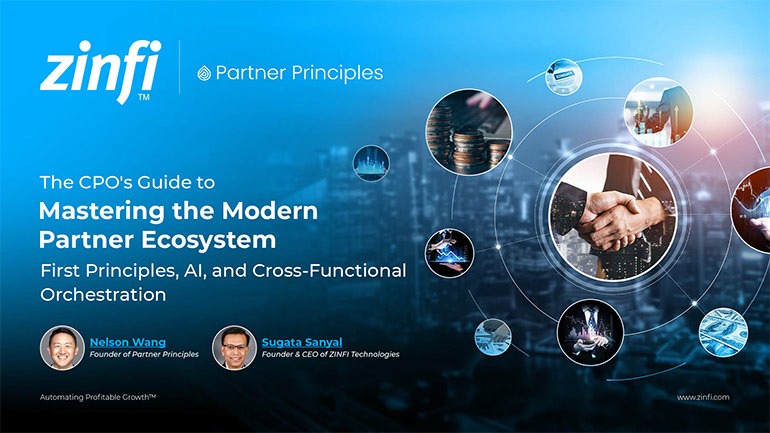 First Principles Drive Modern Partner Ecosystem Success Best Practices
First Principles Drive Modern Partner Ecosystem Success Best PracticesDownload for FREE
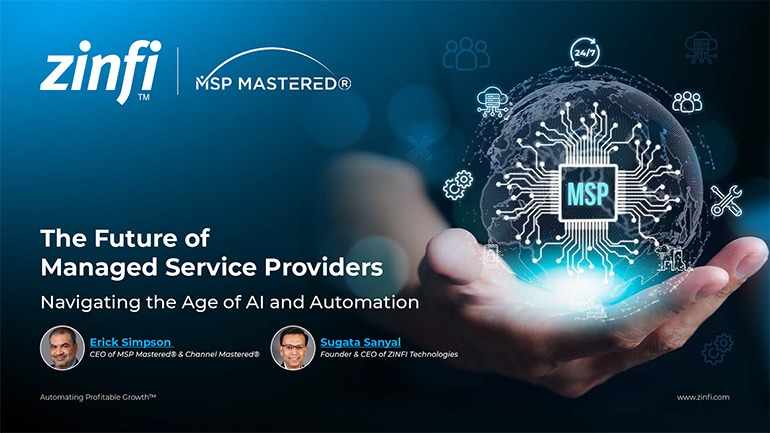 The Future of Managed Service Providers: Navigating the Age of AI and Automation
The Future of Managed Service Providers: Navigating the Age of AI and AutomationDownload for FREE
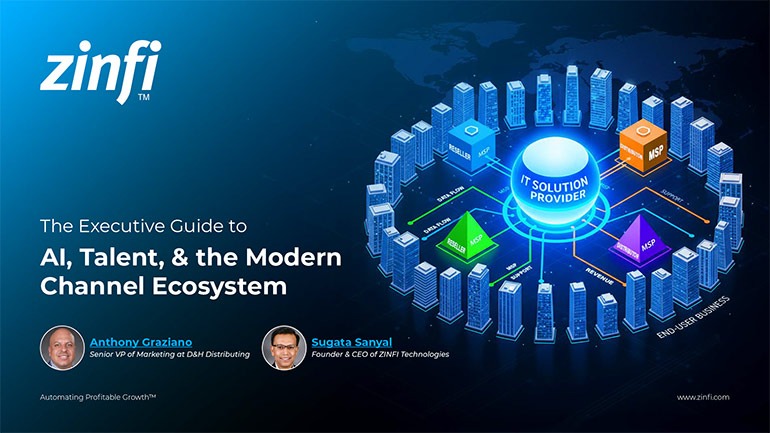 Modernizing Channel Marketing: AI and Ecosystem Enablement Best Practices
Modernizing Channel Marketing: AI and Ecosystem Enablement Best PracticesDownload for FREE
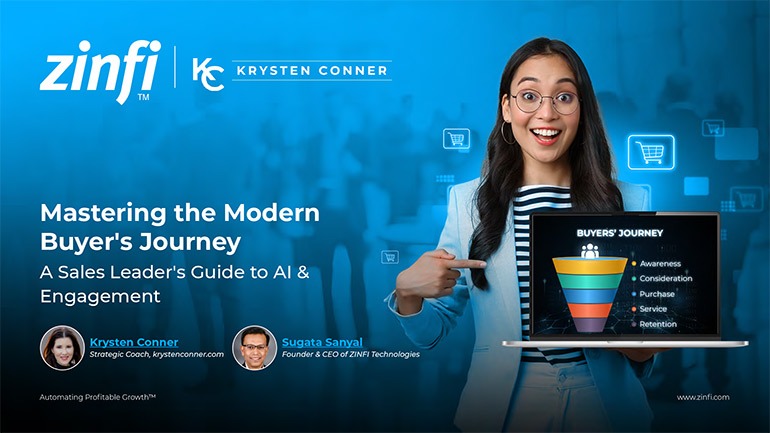 The Channel’s Shift to Partner-Led With AI Best Practices
The Channel’s Shift to Partner-Led With AI Best PracticesDownload for FREE
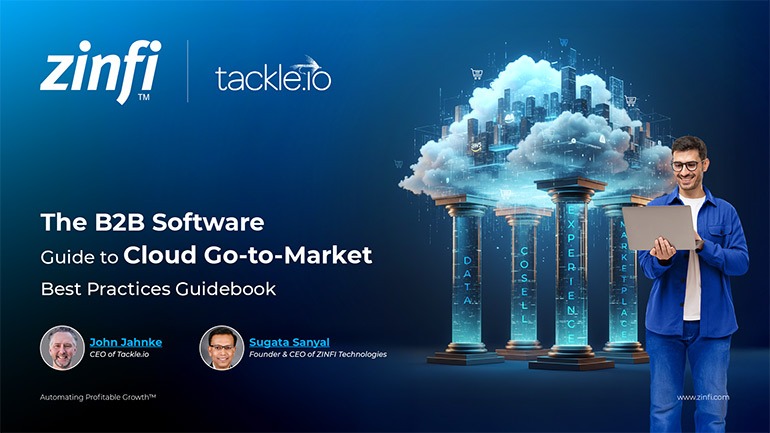 Hyperscalers, ISVs, and AI: Shaping the Future of B2B Software Distribution
Hyperscalers, ISVs, and AI: Shaping the Future of B2B Software DistributionDownload for FREE
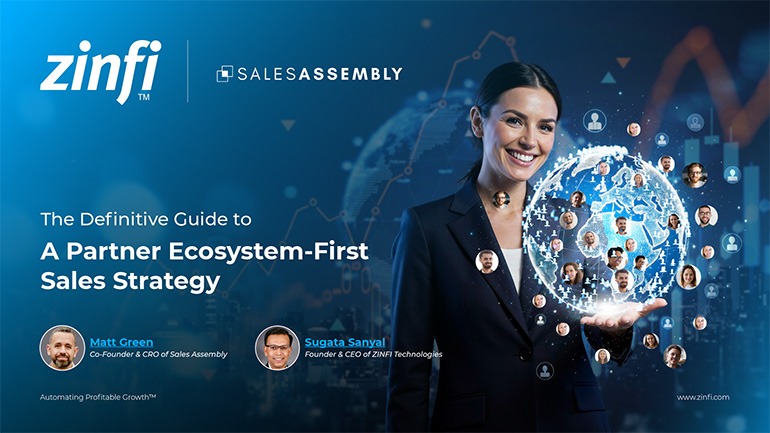 Definitive Guide to a Partner Ecosystem-First Sales Strategy
Definitive Guide to a Partner Ecosystem-First Sales StrategyDownload for FREE
 The Partner-Led Digital and AI Transformation Best Practices
The Partner-Led Digital and AI Transformation Best PracticesDownload for FREE
 Startup Talent Recruitment: Hiring Missionaries, Not Mercenaries
Startup Talent Recruitment: Hiring Missionaries, Not MercenariesDownload for FREE
 The Future of Partner Relationship Management with AI in Partnerships
The Future of Partner Relationship Management with AI in PartnershipsDownload for FREE
 Cybersecurity for the 99%: Strategies from the Frontline
Cybersecurity for the 99%: Strategies from the FrontlineDownload for FREE
 Mastering Partner Relationships: A Strategic Approach to Business Growth
Mastering Partner Relationships: A Strategic Approach to Business GrowthDownload for FREE
 Mastering Partner Relationship Management: Keys to SaaS Channel Success
Mastering Partner Relationship Management: Keys to SaaS Channel SuccessDownload for FREE